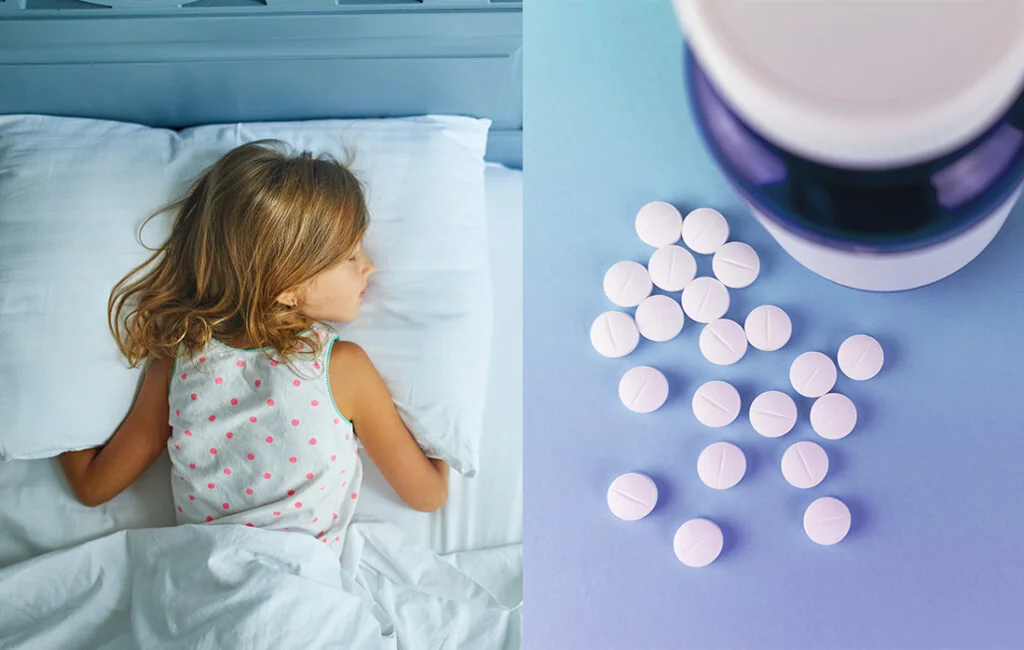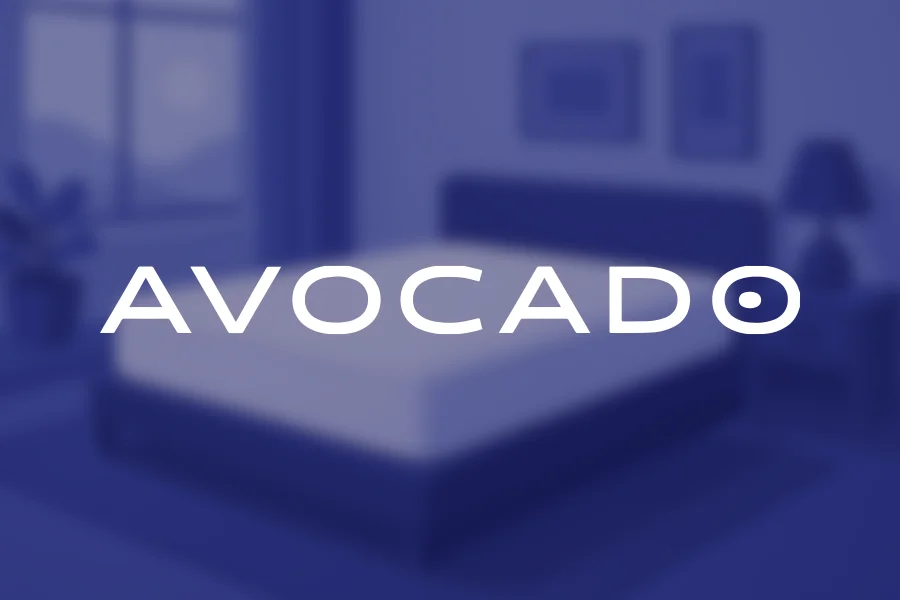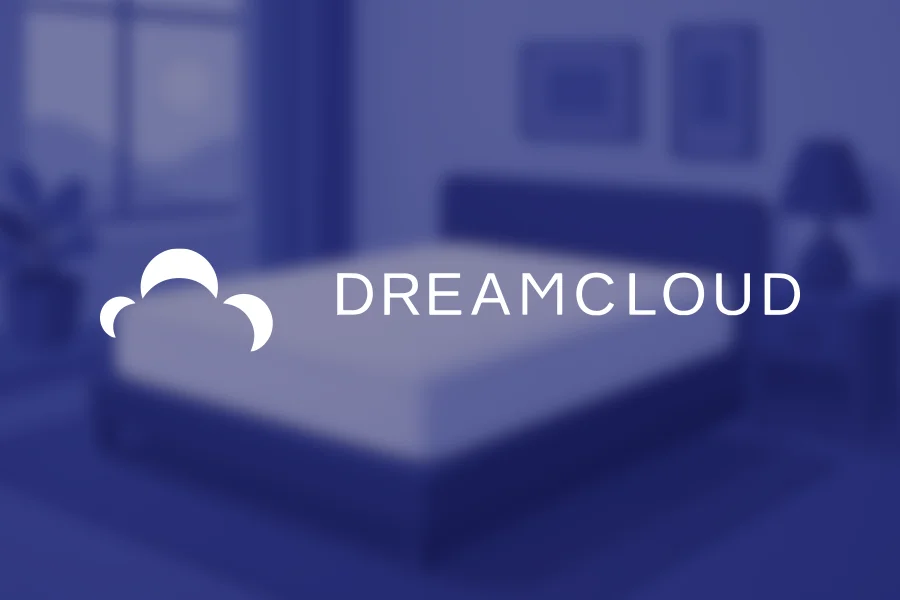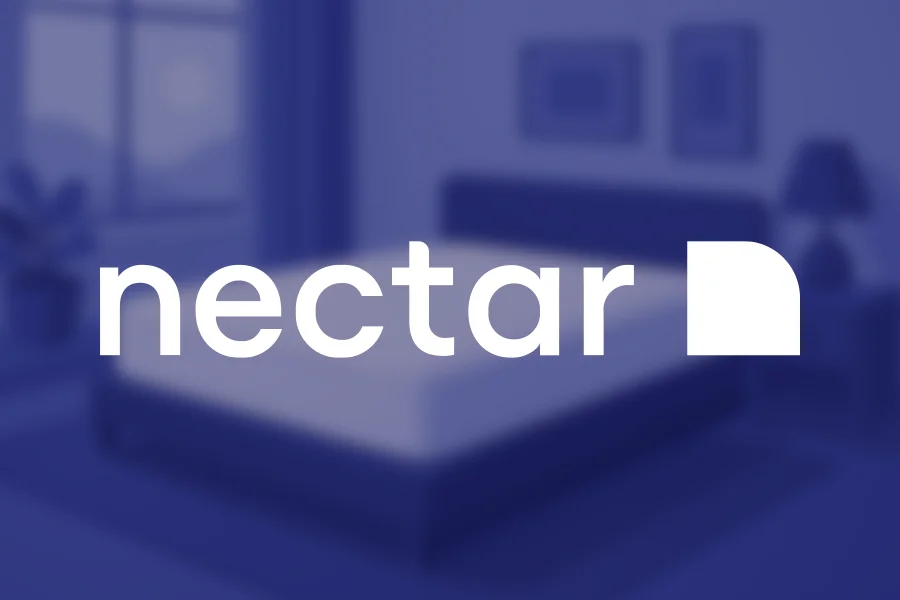
If you browse through Amazon looking for children’s natural sleep aids, you’ll stumble across products that market themselves as “melatonin-free.” Some are positioned next to supplements advertising that they contain melatonin — a potentially confusing lineup for parents in search of a sleep aid for their little ones.
What some people don’t know is that melatonin is a hormone that is naturally produced by your body to regulate your circadian rhythm. Melatonin supplements are available over-the-counter in the United States, but are not approved by the FDA — and are available only with a prescription in some places like the United Kingdom.
As reported by CNN, a recent spike in melatonin-related children’s emergency room incidents highlighted in a March 2024 report has resulted in new industry recommendations to hopefully prevent such accidents from occurring. (1)
The report found that close to 11,000 children had been to the emergency room due to unsupervised melatonin ingestion between 2019 and 2022. Notably, almost 5,000 of these cases involved melatonin gummies, (2) which can be particularly dangerous for kids because of their candy-like taste and appearance.
Dr. Michelle Caraballo, Pediatric Pulmonologist and Sleep Medicine Specialist at Children’s Health Assistant Professor at UT Southwestern Medical Center, told Sleepopolis that melatonin is very safe when used properly and under the supervision of a physician. That said, it’s not treated with the same standards as other medications. “I don’t think we take melatonin seriously enough in the United States,” said Dr. Caraballo, “In other countries it’s much more tightly regulated and often available by prescription only.” (3)
Recent recommendations by the Council for Responsible Nutrition (CRN) were made to address this growing concern. On April 15, 2024, the CRN announced two new sets of voluntary guidelines, one for melatonin-containing supplements and the other for all gummy supplements.
The recommendations for melatonin supplements include cautionary label statements, disclosures of any overages of melatonin (as some supplements contain significantly more than what they say), and child deterrent packaging for melatonin supplements that are in “flavored chewable forms that could be especially attractive to children.” (4)
Though slightly different, the recommendations for gummy supplements include labeling advisories, statements that highlight potential choking hazards, and potential child deterrent packaging. (4)
“The new CRN guidelines are a huge step forward in communicating how to safely and effectively utilize melatonin,” Dr. Todd Zimmerman, pediatric emergency medicine physician and medical director at Pediatrix Medical Group in Las Vegas, told Sleepopolis. (5)
“I encourage anyone that is either taking or will take melatonin, or who has children in the house where someone is taking melatonin, to review these guidelines and discuss them with other family members,” said Dr. Zimmerman.
Potential Dangers of Melatonin for Children
Dr. Caraballo told Sleepopolis that melatonin, when used appropriately, typically does not cause side effects in children. And, she said it can be helpful in certain scenarios. “[Melatonin] can be particularly helpful for transitions such as time changes and traveling across time zones, and in certain populations like children with autism spectrum disorder,” explained Dr. Caraballo. (3)
Dr. Caraballo speculates that the rise in these melatonin incidences could be due to the fact that melatonin is sometimes treated with less precautions than other medications. “Because it’s ‘natural,’ people may assume it’s harmless and be a little more careless with it,” she told Sleepopolis.
So what, specifically, are the potential concerns about melatonin?
Melatonin supplements, especially gummies, can also pose a choking hazard for children, as the CRN’s press release mentions.
Dr. Zimmerman told Sleepopolis that the side-effects of taking too much melatonin can include prolonged sleepiness or lethargy, confusion, anxiety, nausea, headaches, and less commonly, low blood pressure. (5)
Dr. Caraballo added that more serious side effects might occur in children with medical conditions like diabetes, kidney disease, liver disease, and cerebral palsy. “These children should not take melatonin without consulting their physician.” (3)
If you do keep melatonin or other supplements in the house, Dr. Zimmerman recommends keeping them out of reach for children.
“Like medications, the same goes for vitamins and supplements,” said Dr. Zimmerman, “It is incredibly important to ensure that all medications, vitamins and supplements are kept in a locked storage area that is not accessible by children.” (5)
As always, it’s a good idea to check with your doctor before giving a new supplement to your children. And while melatonin can be helpful in certain situations, these recommendations from the CRN will hopefully highlight the importance of taking supplements seriously, even if they don’t appear to have dangerous side effects or warnings.




Sources
- LaMotte, Sandee. “Melatonin industry asked to voluntarily tighten standards after dramatic rise in childhood ER visits.” CNN. April 16, 2024. https://www.cnn.com/2024/04/15/health/melatonin-safety-standards-wellness/index.html
- Freeman, Devin, et al. “Notes from the Field: Emergency Department Visits for Unsupervised Pediatric Melatonin Ingestion — United States, 2019–2022.” MMWR Morb Mortal Wkly Rep 2024;73:215–217. DOI: http://dx.doi.org/10.15585/mmwr.mm7309a5
- Caraballo, Michelle. Personal Interview. April 16, 2024.
- Council for Responsible Nutrition. “CRN Adopts New Guidelines for Melatonin Supplements to Promote Responsible Usage.” CRN. April 15, 2024. https://www.crnusa.org/newsroom/crn-adopts-new-guidelines-melatonin-supplements-promote-responsible-usage
- Zimmerman, Todd. Personal Interview. April 16, 2024.


























